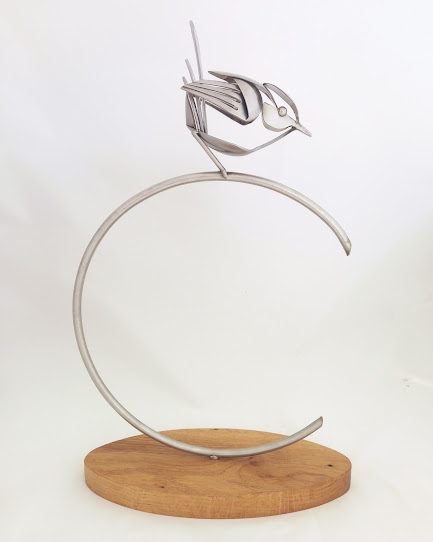I take pride in packaging my orders up really nicely with 'eco' materials!
£10 for postage and packaging for UK mainland per item. Possibly multiple items if in one box depending on size and weight.
*Premium Cutlery: Regarding your decision both are suitable for outdoors. Stainless steel corrodes much slower than mild steel. Mild steel goes completely brown within a couple of weeks unless protected by something. I take time to remove cutlery that I think is very cheap and will corrode fast. This usually looks thin, bends easily, brittle, has a grainy texture, appears stamped and markings are few or very basic. It may already show signs of corrosion, such as pitting, or rust spots.
The 'standard cutlery' on the other hand is harder to bend, has smoother edges, clear makers stamps some well-known. Smoother finish and less grainy.
Even stainless steel is on a journey of corrosion, it's just some corrode faster than others, it's just a matter of time, but we can do things to help slow it down.
The 'premium cutlery' offers better corrosive resistance, this means it may require less maintenance to protect or clean it in the long run. This is because it exhibits characteristics such as: 'non-magnetic' and or marked with it's nickel content e.g. 18/8 or 18/10. It is usually slightly wieghtier, smoother, chunkier and has a subtle golden lustre to it, which is the nickel. It does not tend to be heavily patterned either.
Because, the quality of cutlery varies so much, I can’t guarantee it won’t discolour over time. If you would like your sculpture to remain shiny and stainless you may need to clean, oil or lacquer it. This particulary true of marine environments where the salty air can be very corrosive to metal. You may decide to display it indoors, in which case please see one of the options I have above.
CARE INSTRUCTIONS
· Use a bathroom cleaner for example ‘Cif’ or equivalent and sponge
· Use a polish designed for cleaning and protecting stainless steel, such as ‘Peek Polish’.
· Place in the dishwasher if it is small enough and is entirely cutlery based.
· Oil it with WD40, Vaseline or equivalent.
· If you live close to the sea and the air is particularly corrosive then lacquer your sculpture if oiling is not providing sufficient protection.
· Avoid placing your sculpture under hard or acid water fountains, as this can be corrosive to the cutlery.
· Avoid wetting your sculpture if it has bike chain as this will rust – This is only used on sculptures specified as ‘indoor sculptures’ anyway.

.jpg)
.jpg)
.jpg)


